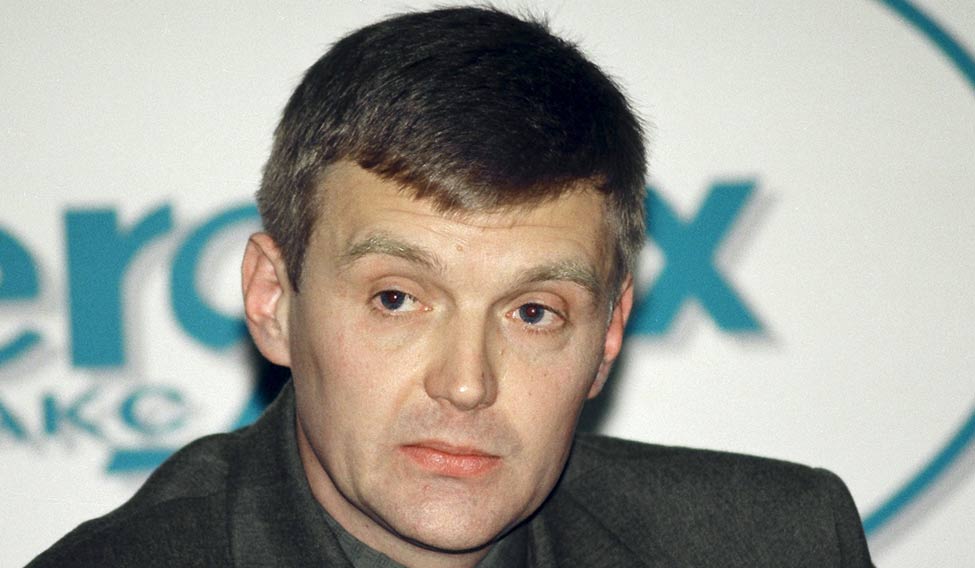Russian President Vladimir Putin "probably approved" the killing of former KGB agent Alexander Litvinenko who died here in 2006 from radioactive poisoning, a British inquiry concluded on Thursday, prompting Prime Minister David Cameron to term the murder a "state-sponsored action".
The findings of the inquiry triggered a diplomatic row between the UK and Russia, which termed the charge a possible "joke".
43-year-old Litvinenko, a former agent in the Russian federal security service (FSB) or secret police, died in a hospital here days after being poisoned with radioactive polonium-210 which he is believed to have drunk in a cup of tea.
The finding by Robert Owen, a retired High Court judge, in a 328-page report represented by far the most damning official link between Litvinenko's death and the highest levels of the Kremlin.
While he lay dying in a London hospital bed, Litvinenko had pointedly told Scotland Yard that the Russian President had given the orders for his killing.
There is a "strong probability" they were acting on behalf of the Russian FSB secret service, the inquiry found.
Meanwhile, Prime Minister Cameron termed the killing a a "state-sponsored action" in a clip to British television from Davos.
"What happened was absolutely appalling and this report confirms what we've always believed, and what the last Labour government believed at the time of this dreadful murder, which is it was state sponsored action," he said.
Kremlin, however, dismissed the results of the inquiry and termed it a possible "joke".
"Maybe this is a joke. More likely it can be attributed to fine British humour—the fact that an open public inquiry is based on the classified data of special services, unnamed special services," Putin's spokesman Dmitry Peskov said.
Two Russian men, Andrei Lugovoi and Dmitry Kovtun, have been accused of his murder. They deny killing him.
Owen said that taken as a whole, the open evidence that had been heard in court amounted to a "strong circumstantial case" that the Russian state was behind the assassination.
But when he took into account all the evidence available to him, including a "considerable quantity" of secret intelligence that was not aired in open court, he found "that the FSB operation to kill Litvinenko was probably approved by [Nikolai] Patrushev [head of the security service in 2006] and also by President Putin".
At the time of his death, Litvinenko was working for the British intelligence service MI6 and also for Spanish intelligence, passing on information on Russian organised crime networks and their links to the Kremlin. Litvinenko was due shortly to become a star witness in a number of trials.
British Prime Minister David Cameron's official spokeswoman said Downing Street was taking the findings "extremely seriously" and that the Prime Minister found them "extremely disturbing".
The spokeswoman said: "The conclusion that the murder was authorised at the highest levels of the Russian state is extremely disturbing. It is not the way for any state, let alone a permanent member of the UN Security Council, to behave.
"Regrettably, these findings confirm what we and previous governments already believed."
The spokeswoman said measures taken against Russia in 2007 remained in place, adding: "In the light of the inquiry's findings, we are considering what further action we should take."
In Moscow, Russian Foreign Ministry spokeswoman Maria Zakharova said, "We regret that a purely criminal case was politicised and darkened the general atmosphere of bilateral relations."
"We had no reason to expect that the final findings of the politically motivated and extremely non-transparent process, which has been skewed to achieve the predetermined, 'needed' result, would suddenly become objective and unbiased," she said.
Home Secretary Theresa May presented the UK government's response to the findings in a statement to the House of Commons on Thursday, describing it as a "blatant and unacceptable" breach of international law.
"The conclusion that the Russian state was probably involved in the murder of Mr Litvinenko is deeply disturbing," she said.
"This was a blatant and unacceptable breach of the most fundamental tenets of international law and civilised behaviour. But we have to accept that this doesn't come as a surprise."
She said Russia's continued failure to ensure the two killers are brought to justice is "unacceptable" and that Interpol notices and European arrest warrants for the two men remain in place.
The Treasury agreed to impose asset freezes against the two prime suspects in the Litvinenko murder, May told the House of Commons.
"Senior representations" were being made to the authorities in Moscow, while the Russian ambassador was being summoned to the Foreign Office.
Marina, Litvinenko's widow, welcomed the report's "damning finding" and called for the UK to impose sanctions on Russia in a statement read outside the Royal Courts of Justice, where the inquiry took place. But she said that she been given indications that the UK would do nothing.
"I'm also calling for the imposing of targeted economic sanctions and travel bans against named individuals ... including Mr Putin. I received a letter last night from the home secretary promising action. It [signalled] that the prime minister would do nothing in the face of the damaging findings of Sir Robert Owen," she said.
She called on the UK to expel all Russian intelligence operatives, to impose economic sanctions, and for travel bans on individuals, including Putin.
Litvinenko had acquired British citizenship shortly before his death, after fleeing Russia six years earlier.
The poison used in the killing, the radioactive isotope polonium-210, is exceptionally toxic and posed a huge potential public health risk, after traces of it were left in multiple locations around London by the murderers.





